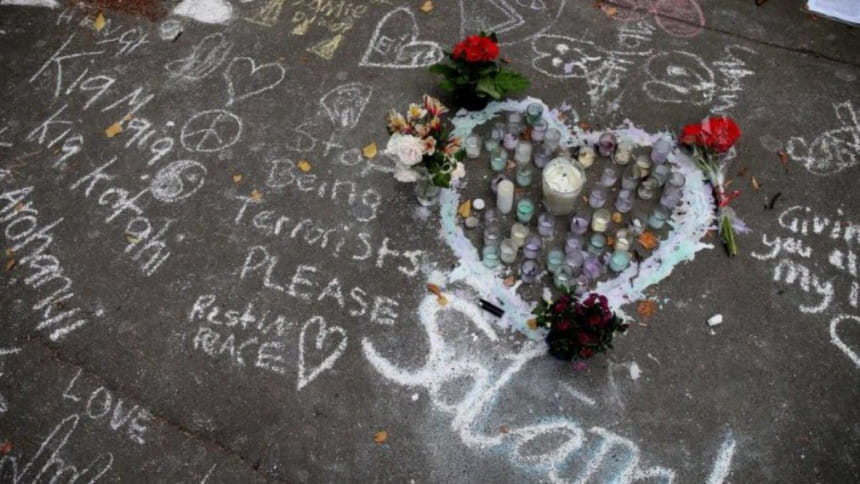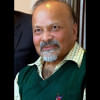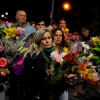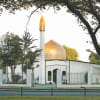Post-Christchurch social reconstruction: Global the message, local the onus

It is not enough to alert the public of social cracks: how they can be repaired must be part and parcel of any de-constructing exercise.
Righteously labelled Christchurch must have been insulted thrice last weekend. The first was preplanning the murder of 50 innocent worshippers. Second, by fouling the city's namesake: Jesus Christ would have been most abhorred. Finally, by unleashing the kind of hatred that even the most rebellious church preaches against.
Reconstruction must proceed accordingly: reassuring Muslims they are part and parcel of the very society they belong to (unfortunately and increasingly, even in their own Islamic-majority countries); bridging stubbornly diverging pockets, beginning with Christians and Muslims, but urgently extending to Buddhists, Hindus, and Jews; and equally urgently, building a collective-mindedness for a change, since, on that same fateful 3/15, school children the world over reprimanded their pompous, braggadocio, silver-accumulating adults for buggering up their own environmental future.
How New Zealand's Prime Minister Jacinda Ardern got the ball rolling promptly and pointedly serves a lesson for her male counterparts. Talking about "migrants," "refugees," and "Muslims," among other threatened groups, she prosaically merely reiterated what New Zealanders knew: "they are us." She categorically closed up on perpetrators: "they are not us."
Contrast those words contextually with a similar post-9/11 occasion, when US President George W Bush warned: "Either you are with us. Or you are with the terrorists." His words exposed Muslims, since 9/11 was executed by referencing Islam, while Ardern's embraced them. His summoned other countries to follow the United States; hers diffused responsibility responsibly, invoking all New Zealanders, including refugees, migrants, and Muslims against the perpetrating mindset. His played the Manichaean game (interpreting only through white versus black prisms) to its hilt; hers shaded interventions with gray hues. His ultimately energised political and militant audiences, while hers encouraged the broader social and cultural groups.
One off-shoot was the newly created Department of Homeland Security. Serving as the "be-all" and "end-all" US arbiter (especially in the initial post-9/11 years), it restructured the entire US administration, while Ardern's government made gun-control the first parliamentary duty after the 3/15 shock. Ho-humming about guns or controlling them suddenly has huge civil society and accountability consequences within democracies.
Just as Bush's nationalistic message resonated globally ("We are all Americans," France's Le Monde headlined just after 9/11), so too did Ardern's, more humanely: "they are us." It is not just the former's exclusiveness contesting the latter's inclusiveness, but with Muslims victimised in both cases for quite different reasons, the top-down dissemination of the former encourages keeping Muslims at bay, while the bottom-up, protocol-free Ardern response of mixing, grieving, sobbing, and praying with Christchurch Muslims promotes the unity solutions need. She unwittingly leaves students of negotiations, diplomats, and leaders worldwide with more practical learning than all the well-stocked libraries and classroom pulpits in "great power" countries.
This first, and most pivotal, reconstruction work began straightaway. New Zealanders did what they routinely do: support, sympathise, share, and empathise with Muslims, setting a template in collective action even the most Muslim-supportive symbolic western gestures cannot match, whether in post-9/11 United States, post-7/7 London, or after the infinite European terror incidents since. When the typical Muslim is not seen as a terrorist, solutions ripple, something the media, especially the Daily Mirror, must remember: one does not have to have blonde hair, or come from the west to be "angelic faced". But clearly treating a Muslim as an automatic terrorist, unless proven otherwise, inflicts grievous, long-lasting pain. This is the cardinal break every country must make to live in what will become a tempest-torn twenty-first century, when instinctual individualism (evident most glaringly in how we worship "selfies" more than scriptures or scholarship these days), automatically unbuttons the conflict hormones. Every time we innocuously push the "like" button on any Facebook posting, we automatically blind ourselves to the life and people outside that "like" group. A silent cultish attitude develops.
Dissolving Christian-Islam discomfort faces an oddity. On the one hand, Christianity has long projected secularity, going back to the 1648 Westphalia Treaty: temporal power has long been wielded by Caesars (rulers), spiritual by the Church, in a relationship which elevates the former over the latter, making it flimsy to speak of Christianity being at arms today, at least across West Europe. With Islam, on the other, though spiritual and temporal powers have always been institutionally intertwined, princely power has almost always over-ridden the priestly, whether caliphs (after the Four Rightly Guided Caliphs), rajas, sultans, or kings. Fundamentalism, a historically minority view, capitalises on this to shape majority views today, whether in Islam or Christianity, or Buddhism, Hinduism, or Judaism. More Arderns will be needed, in each country in its own way, to tackle this scourge. The goal need not be the "perpetual peace" Immanuel Kant spoke of in late eighteenth century, which flows from democracy, a fading practice today. Nor does it have to necessarily be the Mahatma Gandhi version of practicing non-violence. It must, first, facilitate bridge-building locally, then transcendentally, to come to terms with the second reconstruction task more resolutely today.
Two groups needing this the most, Jews and Muslims, expose both the broken order and the yearn to fix it. Palestine's unfolding holocaust horrifies even some of the few remaining victims of Adolf Hitler's Holocaust of the 1930s, yet it continues under the very eyes of the entire world without a meaningful murmur. Nowhere else can an Ardern make more mileage than here and right now, like the Pittsburgh Jews have done. Facing a similar white supremacist, David Bowers, in an identical attack in the Tree of Faith Synagogue last October (with 11 fatalities), they have reached out to aggrieved Christchurch Muslims. That the heeded message is sinking in was also evident through Australia's "Egg-boy", William Connolly: for a youth to chastise Queensland Senator Fraser Anning for finger-pointing Christchurch and other Muslims out for terrorist acts is a positive future signal. That he simultaneously diverted some of the donations to fight the legal case against him for throwing the egg towards Christchurch relief, is heart-warming. Whether the Christchurch terrorist's Israel visit had anything to do with his actions or not, more than any other groups, Jews and Muslims, need fence-mending the most, since their own feud fuels the larger anti-Muslim fundamentalist fire.
Graver still are threats against, not race, religion, or nationality, but humanity. This third reconstruction arena also has a 3/15 connection (see Saleemul Huq's March 20 The Daily Star piece on this): 16-year-old Greta Thunberg's Climate (In)Action protest against adult inaction was hijacked from Christchurch school-children by the terrorist shooting. If children feel abandoned by adults, while the #MeToo Movement exposes other discriminations, and a half-trillion-dollar illicit-drug industry emaciates our youth (seven million in Bangladesh alone, half on yaba pills), surely problem-solving demands more collective attention than lone-wolf hatred mongering.
This must be the ultimate hurdle, and we may be near the final call. Whether we are equal to the challenge or not will be the key twenty-first story that Christchurch alerts us to.
Imtiaz A Hussain is the head of Global Studies & Governance Program at Independent University, Bangladesh (IUB).










Comments